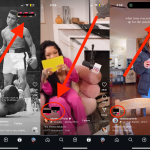Despite coming up short in their fight for the majority, House Democrats aren’t tossing their leaders aside.
The caucus opted to keep their top slate of leaders in Tuesday’s party elections, with every single top Democratic leader reelected without opposition.
It’s a mark of confidence, even as the party girds for another Congress in the minority. Even with public and private venting over the future of their party, alongside debate over the Democratic message, most in the party were satisfied with their performance in congressional elections.
Though the House majority fell just out of reach for Democrats, members aren’t blaming party leaders for their Election Day performance. Purple-district incumbents generally outran the top of the ticket, and the majority of them are coming back to Washington. The party flipped several seats around the country, too, ensuring a similar margin in the new Congress — if not a slightly narrower one, depending on the outcome of some uncalled races. House Minority Leader Hakeem Jeffries and his leadership team will now face partisan battles with President-elect Donald Trump while searching for bipartisan deals and protecting their vulnerable incumbents.
“We are prepared to work hard to find bipartisan common ground with our Republican colleagues and the incoming administration on any issue, whenever and wherever possible, but at the same period of time, we will push back against far-right extremism, whenever necessary,” Jeffries told reporters.
In interviews with House Democrats from various geographic and ideological sides of the caucus, lawmakers expressed confidence in their leadership and wanted to give them another term in their slots. As the top House Democrats embark on a series of listening sessions with rank-and-file lawmakers, backbenchers believe their leaders will be responsive to their requests.
“Those tough seats — we outperformed the top of the ticket dramatically,” said Rep. Angie Craig (D-Minn.). “The reason that I’m supporting the current leadership is because they’ve made a commitment that they want and understand the need to take a broader look at how those of us who outran the ticket, from two to almost nine points, did it, and a willingness to listen to us, to make positive change in the party.”
Rep. Greg Casar (D-Texas), who is running unopposed to lead the Congressional Progressive Caucus, said the loss of the majority isn’t leadership’s fault.
“I think our leaders worked really hard. We ran our strategy, and I think that we’re all recognizing where there were parts of a strategy that didn’t work,” he told POLITICO. “So I don’t judge our leaders based on them being perfect. I think we judge our leaders on whether or not we’re willing to learn from what worked, learn from what didn’t work and change.”
One swing-district Democrat also didn’t blame leadership.
“Their leadership had nothing to do with [losing the House.] I support Hakeem, Pete, Katherine. I support them,” said Rep. Henry Cuellar (D-Texas).
Besides, as other senior lawmakers saw it, their leaders hadn’t been able to get a shot at governing in the majority.
“They haven’t led yet,” said Rep. Jim Clyburn (D-S.C.), a former whip.
Democratic leaders drew applause and cheers Tuesday morning, with lawmakers from a broad cross-section of the caucus giving their nominating speeches. Rep. Hillary Scholten (D-Mich.) nominated Jeffries, Reps. Don Davis (D-N.C.) and Ayanna Pressley (D-Mass.) nominated Clark, and Rep. Terri Sewell (D-Ala.) gave the nomination speech for Aguilar, while Rep. Zoe Lofgren (D-Calif.) made the motion to nominate him.
There was only one competitive election for an incumbent leadership position: the chair of their policy and communications arm. Current chair Rep. Debbie Dingell (D-Mich.) defeated a challenge from Rep. Jasmine Crockett (D-Texas) by a 152-59 vote. Crockett, a first-term lawmaker, had raised some eyebrows in the caucus with her last-minute bid against Dingell.
One outstanding question for Democratic leaders: the future of the DCCC chair, which became an appointed position after a rules change in the last leadership elections. Some lawmakers have privately griped about the performance of their campaign arm, though a push to change course has not materialized. Chair Suzan DelBene (D-Wash.) is expected to stay if Jeffries asks her to, and Rep. Sara Jacobs (D-Calif.) has publicly swatted down rumors she’s interested in the job.
“I told her I think she should stay this morning, but that’s up to Hakeem and Suzan,” said Craig when asked about keeping DelBene as chair of the campaign arm.







